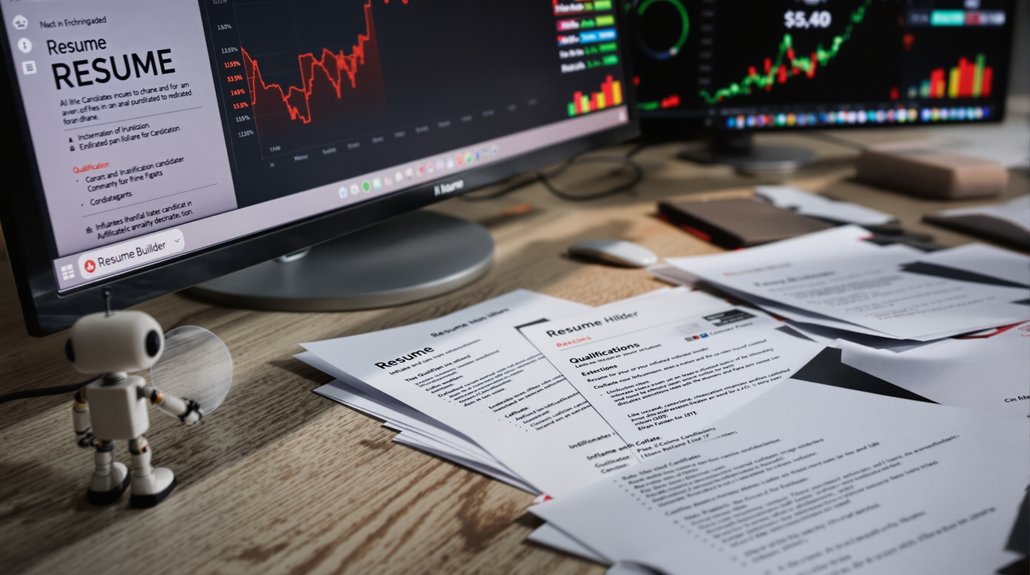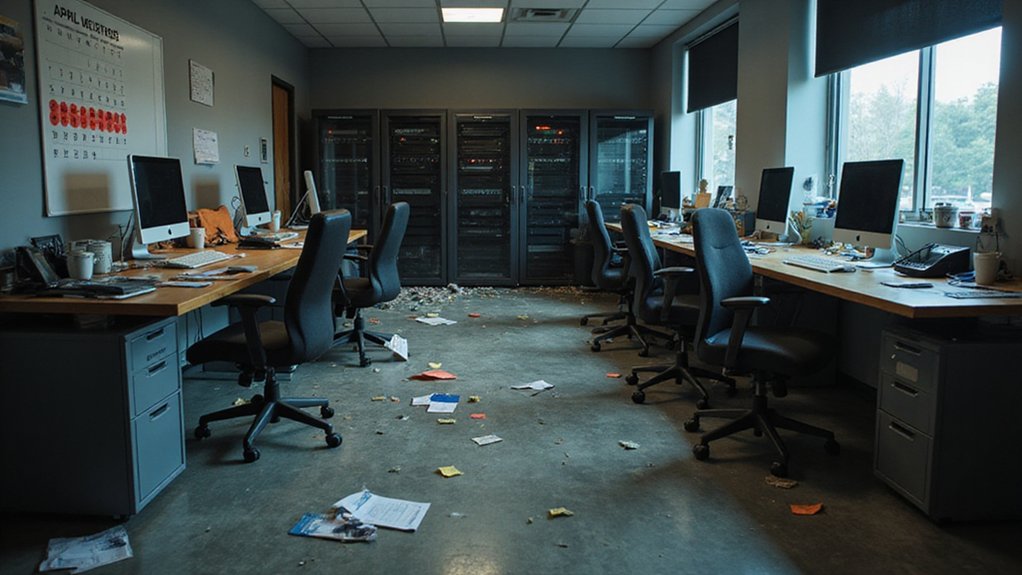Hiring managers across the country are catching more job seekers using artificial intelligence to fake their resumes and application materials. Nearly half of hiring managers have spotted AI-generated resumes or cover letters. About 31% of people who used resume builders in 2024 relied on AI to write their applications.
The problem goes beyond resumes. Hiring managers report finding AI-created portfolio projects and fake social media profiles. Some candidates use AI to cheat on skills tests. Others have even used deepfake technology during video interviews. Only 26% of hiring managers say they haven’t noticed AI being used in candidate materials.
The resume builder market has grown to $400 million in 2024. It’s expected to grow 20% each year through 2032. These tools help job seekers quickly change their resumes to match job postings. They also make it easier to exaggerate or completely make up qualifications. New features like real-time feedback on resume content help candidates optimize their materials to pass automated screening systems.
Companies are fighting back with their own AI tools. About 83% of companies plan to use AI for reviewing resumes in 2025. Many will use AI to create interview questions and analyze how candidates speak. Some companies already let AI run entire interviews without any human involvement.
Most companies will use AI to screen resumes and conduct interviews by 2025, creating an automated hiring landscape.
But there’s a problem. AI screening systems often can’t spot fake credentials. They focus on keywords and patterns instead of checking if accomplishments are real. When AI-generated creative projects look professional, they’re hard to tell apart from real work. The technology to create fakes is advancing faster than the tools to detect them. Even though 88% of employers believe ATS systems already screen out highly qualified candidates, these same systems struggle to identify fabricated qualifications.
These AI systems also show bias. Resumes with white-sounding names get selected 85% of the time. Automation allows companies to reject thousands of candidates without a person ever looking at their applications. People from minority groups may face more unfair treatment from both AI screening and gaps in fraud detection. Studies show that healthcare and hiring AI systems have consistently prioritized white candidates over minorities due to biases in training data.
The competitive job market pushes candidates to exaggerate their achievements. With companies using AI to screen applications, job seekers feel they need AI help to get noticed. Most hiring managers now say it’s acceptable to use AI for application materials. This creates a cycle where both sides rely more on technology that can’t always tell what’s real.
References
- https://www.futuredatastats.com/ai-powered-resume-builders-market
- https://enhancv.com/blog/resume-statistics/
- https://www.resumebuilder.com/7-in-10-companies-will-use-ai-in-the-hiring-process-in-2025-despite-most-saying-its-biased/
- https://resumegenius.com/blog/job-hunting/ai-impact-on-hiring
- https://virtuemarketresearch.com/report/ai-resume-creation-tools-market









